Based on an examination of Iran's reactions to Iraq's 1980 invasion, Annie Tracy Samuel calls into question the contention that an attack by the US and/or Israel will weaken the Islamic Republic. This is the final part in a series of two articles. Read part 1 here.
During the Iran-Iraq War, Iran’s Supreme Leader Ayatollah Khomeini and his political and military allies took advantage of the wartime mobilization to consolidate their power. Iran’s current Supreme Leader, Ali Khamenei, and the powerful Islamic Revolution Guards Corps (IRGC) would be able to achieve similar results in the case of an attack on Iran. The Revolutionary Guards have long warned of the dangers posed by Iran’s external enemies and have characterized internal opposition as the work of external forces. An attack on Iran will seemingly vindicate the IRGC’s position and enable them to increase repression and their own power. Iranians favoring any sort of softer line will be undermined and suppressed.
An Attack on Human Rights
Hossein Ghazian, an Iranian sociologist who was jailed in Iran and is now a visiting scholar at Syracuse University, said that, in the case of an attack, the regime would have "enough legitimacy, excuses, and reasons to repress those opposed to it." Similarly, in a 2005 op-ed in The New York Times, Iranian human rights activists Shirin Ebadi and Hadi Ghaemi put forward "The Human Rights Case Against Attacking Iran." They argued that "for human rights defenders in Iran, the possibility of a foreign military attack on their country represents an utter disaster for their cause." The authors also drew a parallel with the Islamic Republic’s behavior following the 1980 Iraqi invasion. They argued that the "threat of foreign military intervention will provide a powerful excuse for authoritarian elements to uproot [independent human rights organizations] and put an end to their growth." Furthermore, they asserted that"Human rights violators will use this opportunity to silence their critics by labelling them as the enemy’s fifth column. In 1980, after Saddam Hussein invaded Iran and inflamed nationalist passions, Iranian authorities used such arguments to suppress dissidents."
In a report released by the International Campaign for Human Rights in Iran in November 2011, Ghaemi, writing as the president of the organization, emphasized that the parallel is still valid. In summarizing the views of Iranians interviewed by the Campaign, Ghaemi wrote that "an attack would further militarize the state, exacerbate the human rights crisis in Iran, and undermine Iranian civil society and the pro-democracy movement. A military strike would likely lead to an upsurge of political violence, threatening all those considered enemies of the government. Given the mass executions of numerous political prisoners during the Iran-Iraq War, strong fears were expressed about the fate of hundreds of current political prisoners in the event of a conflict with the United States."
Using War to Solve Iran’s Problems
On the whole, the Iran-Iraq War proved to be a very useful tool for consolidating the revolution and Khomeini’s leadership. The war was "the main means for rallying popular support behind the regime," and Iran used it to "harness the energies of the mobilised revolutionary rank and file, settle domestic scores, consolidate power, and focus on the mission of the revolution abroad." As the war’s use for the revolution internally became apparent, the two became intertwined. The war came to symbolize all the revolution was capable of. Iranian leaders both during and after the war have emphasized that the conflict was a blessing and that the Islamic Republic benefited from its experience in the war. While making a virtue of necessity, their position indeed reflects the fact that the war was a boon for the revolution and that Iran triumphed in adversity. The contention that Iran can thrive in hardship plays an important role in its rhetoric against Western pressure and sanctions, and will be an important feature in the response to an attack.
The depiction of the war as a vehicle for the revolution reflects the tendency of Iranian leaders to make foreign policy a proxy for domestic policy. During the Iran-Iraq War, Iran’s leaders characterized the process of waging war as essential to and the most important part of the process of advancing the Islamic Republic internally. Prosecuting the war was less contentious and in many ways easier to deal with than the critical issues relating to Iran’s internal politics and development. Iranian leaders often argued that "ending the war victoriously [was] the key to solving all [the] difficulties" plaguing Iran’s economy and society. Similarly today, there is far greater agreement regarding Iran’s basic foreign policy positions than there is regarding the government’s domestic policies. For the eight years following the Iraqi invasion, Iran was willing and able to devote almost all its energy and resources to fighting its external enemies. We can therefore expect Iran’s leaders to execute any retaliatory campaign with minimal concern for domestic constraints.
Because Iranian leaders staked so much on the war and emphasized that waging it would bring so much good to Iran, ending the war in anything less than near-total victory became incredibly difficult. Given that a future attack on Iran is likely to be similarly beneficial for cementing domestic unity and providing the regime with an excuse to consolidate its power, the impetus for a prolonged retaliatory confrontation will be heightened. In the Iran-Iraq War, Iranian leaders saw a means to maintain the domestic unity that had been so highly fractured prior to the Iraqi invasion. Therefore, drawing out the campaign against the external enemy was seen as a way to keep up support for those leaders. As it is expected that an attack on Iran now would similarly bring a divided population together under the current leadership, it is also expected that Iranians would remain united in support for a campaign of retaliation for such an attack.
Islam vs. the West
The way the Iran-Iraq War is characterized in Iran also sheds light on probable responses to a future attack. Iran’s leaders emphasized that in the war Iranians were fighting on behalf of Islam, while the Iraqis and their supporters were fighting to destroy it. For Islam to be preserved, they argued, the Islamic Republic had to be preserved. Fighting for the regime’s survival was therefore equated with fighting for the survival of the faith. By injecting religion into the prosecution of the war in this way, Iran’s leaders provided "unquestionable rationale for the war." Iranian leaders may adopt a similar strategy in mobilizing support for a retaliatory campaign against a future attack. Depicting confrontation and retaliation in the context of an ideological struggle both serves the interests of Iranian leaders and heightens the intractability of conflict.
Another way Iranian leaders characterized the Iran-Iraq War was as a Western and international campaign against the Islamic Republic. They claimed that the United States encouraged Saddam Hussein to invade Iran and that the international support for Iraq demonstrated the determination to confront and contain the Islamic Republic. Doing so again served to rally support for the Iranian war effort and heightened the stakes of the conflict.
An attack against Iran today, including even limited strikes by a single actor targeting Iran’s nuclear facilities, will be viewed in a similar fashion. It will be seen as a campaign by Israel, the US, and the West to secure their domination of the Middle East and its resources and to extinguish the threat of the Islamic Republic through regime change. Like the 1980 Iraqi invasion, an attack will be viewed in Iran as part of a pattern of Western subversion and aggression that links together British and Russian economic exploitation, occupation during World War II, the coup that overthrew Prime Minister Mohammed Mossadeq in 1953, and years of support for the Shah’s repressive regime. For those in Iran who question the standard narrative of concerted and constant Western aggression, an attack on Iranian territory will dispel any doubt and engender the next generations of Iranians who subscribe to that view.
Iranian Policies Aim to Benefit the Regime
Despite the grandiose terms Iranian leaders use to describe the Iraqi invasion and the Iranian response, those leaders were trying to make rational decisions about the best way to execute the war and to consolidate the Islamic Republic. The decision to invade Iraq, for instance, was seen as necessary for protecting Iran. Iranian leaders feared that if left in power, Saddam Hussein would invade Iran again. Iranian leaders today can be expected to make similar use of revolutionary and Islamic rhetoric, and they can also be expected to respond to threats in ways they deem to be beneficial to the regime. The foreign policy behavior of the Islamic Republic has consistently embodied a rational pragmatism clothed at times in ideological garb.
Military action against Iran, and even the continuing threat of attack, is likely to give the Islamic Republic a new lease on life. Its devoted supporters will be strengthened and mobilized, and it will enjoy the additional support of those who will join in condemning and retaliating for an attack. Threats of a possible strike, and certainly a strike itself, substantiate and animate the security narrative Iranian leaders have been propagating for years: that the West is determined to raze the Islamic Republic. They have mastered the art of using the threat of attack, signs of Western hostility towards Iran, and even invasion, to consolidate their power. Indeed, the more likely an attack appears, the more determined Iranians will be to acquire nuclear weapons capability. The policy of attacking and threatening Iran has served as the lifeblood sustaining the Islamic Republic. We have yet to see how the regime might survive without it.
*[A version of this policy brief was originally published by the Dubai Initiative and the Belfer Center for Science and International Affairs].
The views expressed in this article are the author's own and do not necessarily reflect Fair Observer’s editorial policy.
Support Fair Observer
We rely on your support for our independence, diversity and quality.
For more than 10 years, Fair Observer has been free, fair and independent. No billionaire owns us, no advertisers control us. We are a reader-supported nonprofit. Unlike many other publications, we keep our content free for readers regardless of where they live or whether they can afford to pay. We have no paywalls and no ads.
In the post-truth era of fake news, echo chambers and filter bubbles, we publish a plurality of perspectives from around the world. Anyone can publish with us, but everyone goes through a rigorous editorial process. So, you get fact-checked, well-reasoned content instead of noise.
We publish 2,500+ voices from 90+ countries. We also conduct education and training programs
on subjects ranging from digital media and journalism to writing and critical thinking. This
doesn’t come cheap. Servers, editors, trainers and web developers cost
money.
Please consider supporting us on a regular basis as a recurring donor or a
sustaining member.
Will you support FO’s journalism?
We rely on your support for our independence, diversity and quality.



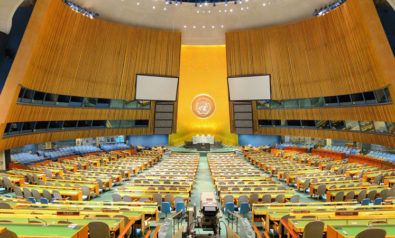



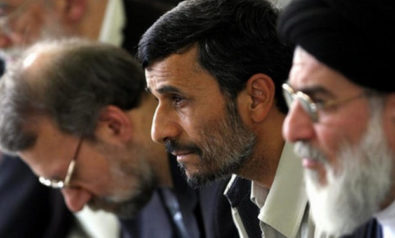

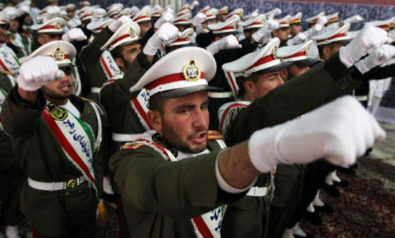


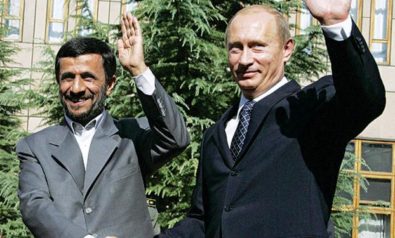


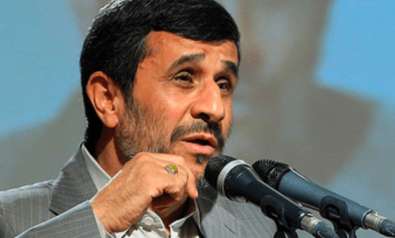



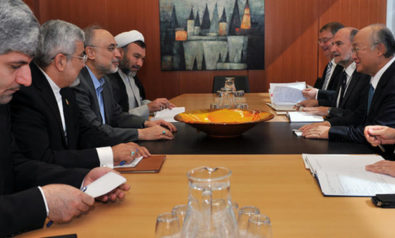

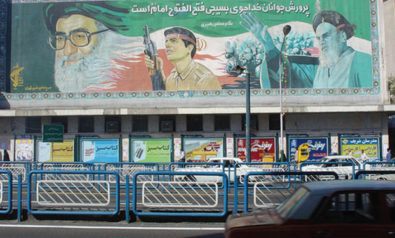

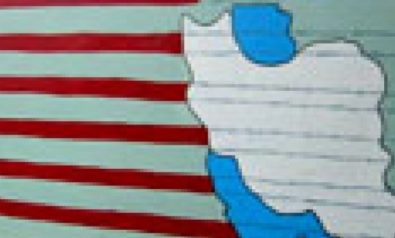

Comment